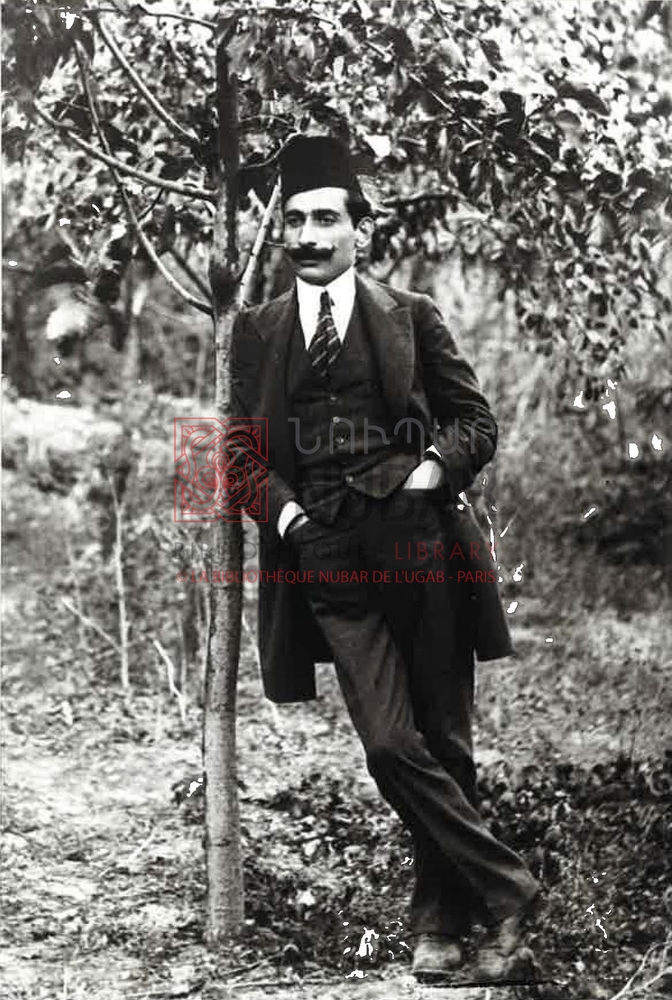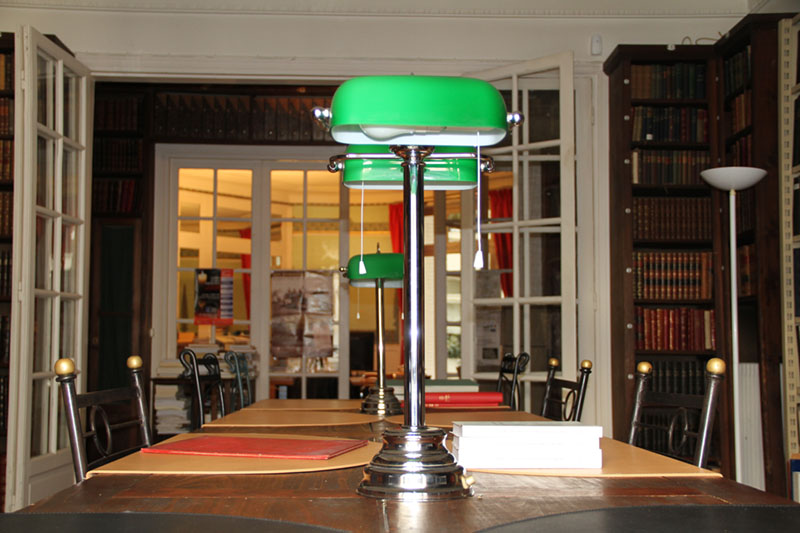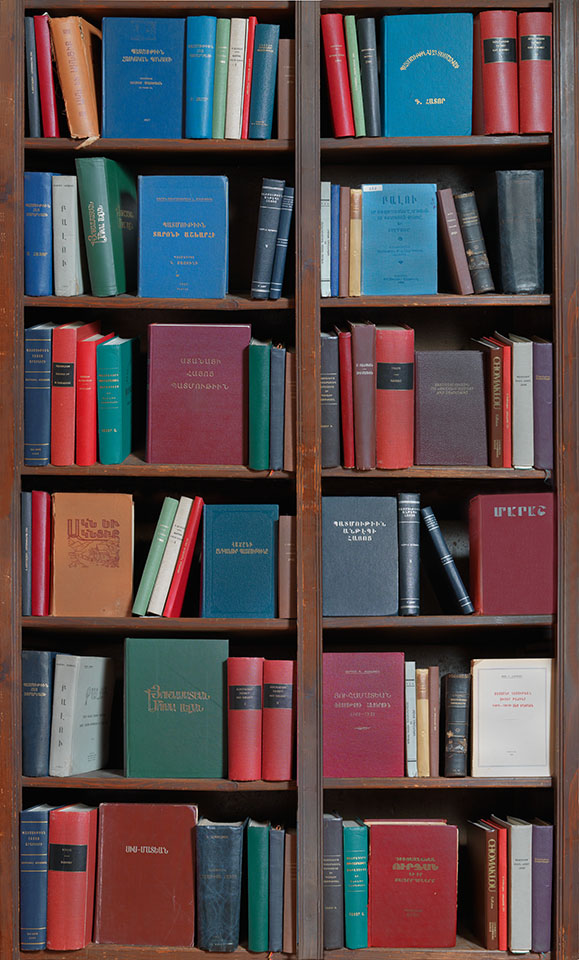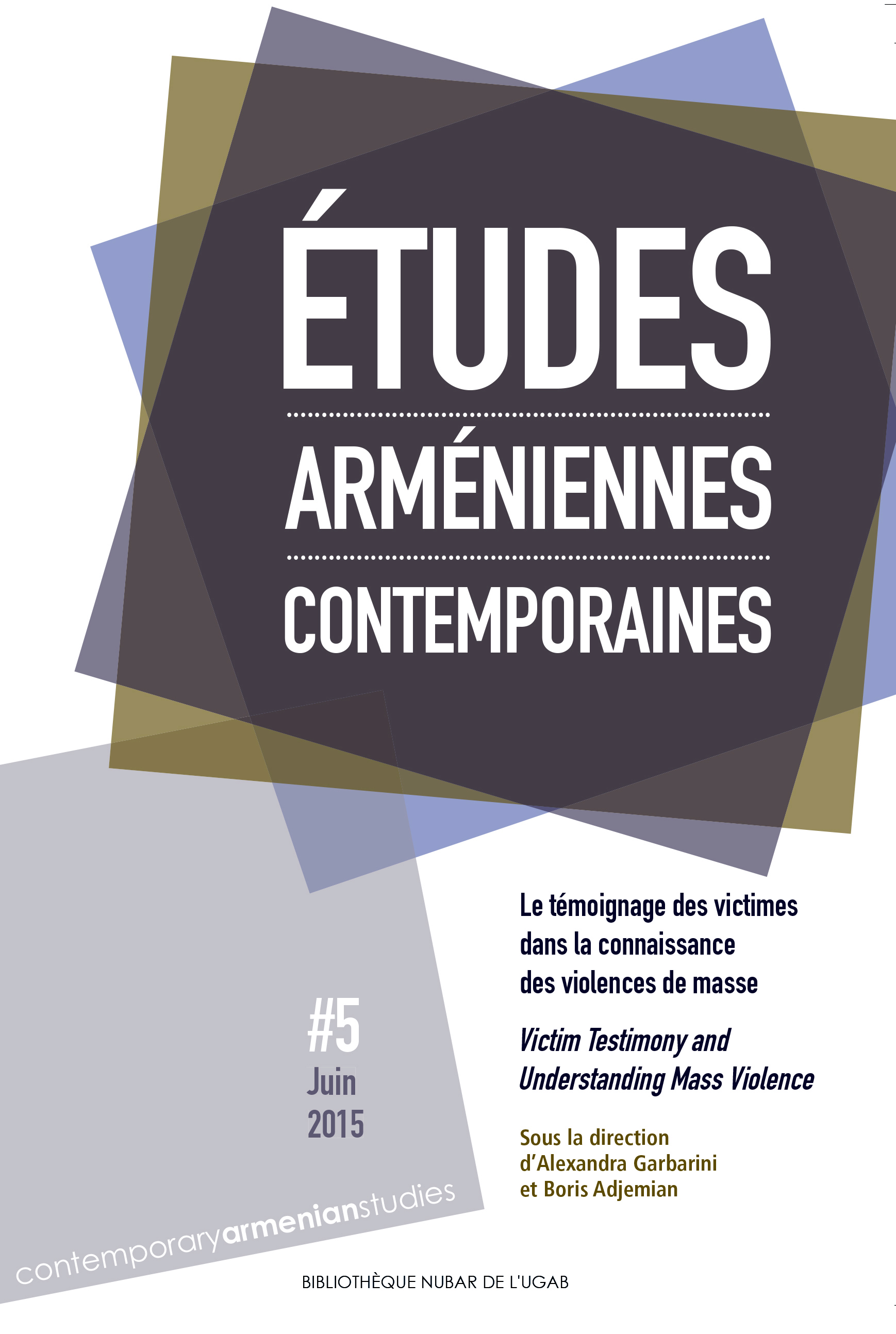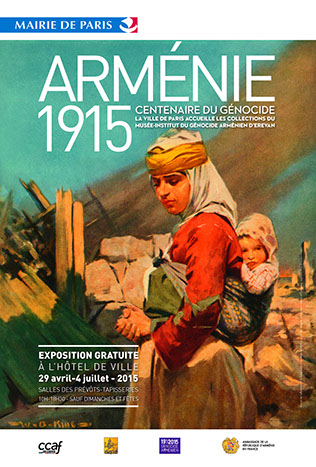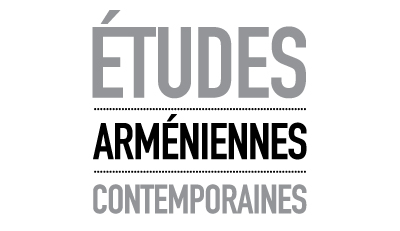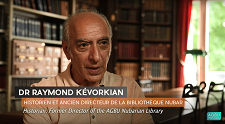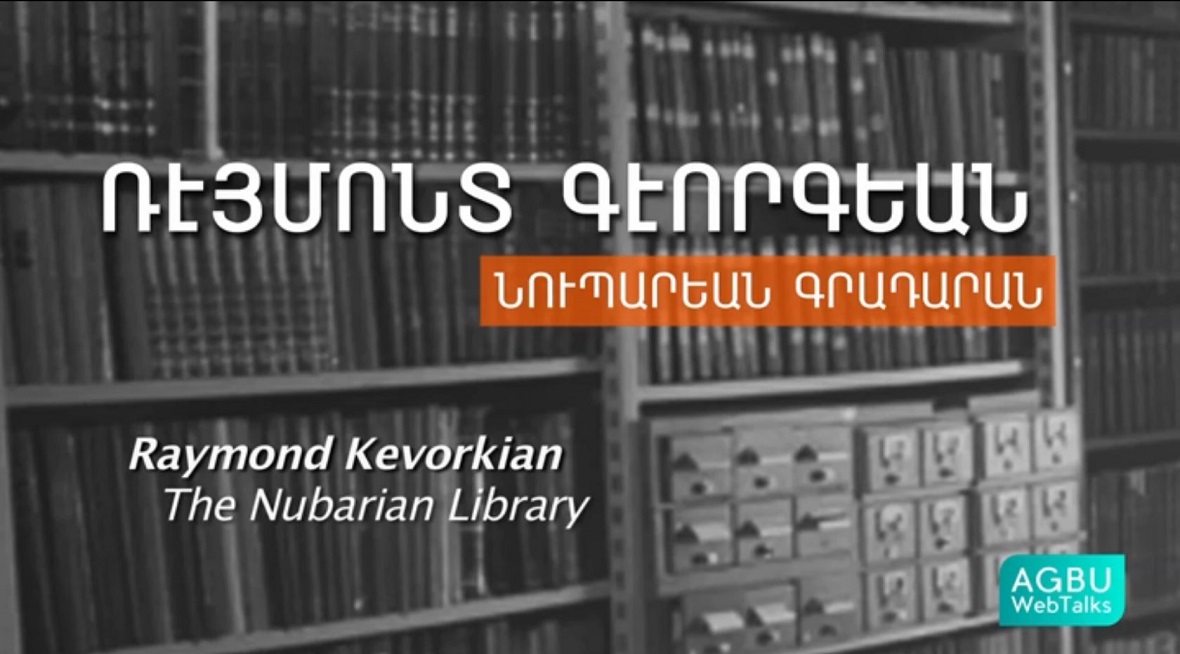|
THE NUBAR LIBRARY: THE HERITAGE AND SCHOLAR INSTITUTION FOR ARMENIAN STUDIES IN DIASPORA |
|
Preserving the Ottoman Armenian Heritage
The AGBU Nubar Library was founded in 1928 at the initiative of Boghos Nubar Pasha. Its first curator, Aram Andonian, had worked in Paris as the secretary of the Armenian National Delegation since the end of World War I. In the spirit of its founders, the Nubar Library was a place dedicated to the gathering, conservation and study of the former Ottoman Armenian heritage after the genocide. The foundation of this Library in Paris resulted from Boghos Nubar's determination to ensure the sustainability and flourishing of an Armenian life in the diaspora, capable of feeding future generations and helping to the rebuilding of Armenia on its historic lands. It is not surprising that Boghos Nubar founded the library and the Armenian Student House (at the Cité internationale universitaire de Paris) at the same time and with the same perspective. These particular circumstances explain why the Nubar Library became the foremost place for scholarship on the Middle East and the former Ottoman Armenian world, and a major resource center on the Armenian experience of the 19th and 20th centuries, and on the history of the Armenian genocide.
Aram Andonian, one of the Armenian intellectuals arrested on 24 April 1915, and then deported to Meskené, a death camp in Syria, tirelessly collected, assembled and archived all the testimonies he could gather about the destruction of his people to the end of his life (1951).
|
|
One of the main historical resource centres in the Armenian diaspora
The AGBU Nubar Library is one of the richest documentation centres on the history of the Ottoman Armenian world and the Armenian Diaspora. Its original task was the collection and archival, in Paris, of every document or publication that may have concerned the Western Armenian world. Today it has become, and stands as an irreplaceable centre dedicated to the study of the heritage of the Armenian diaspora, the history of the Armenian genocide and Armenian immigration to France and the wider Middle East.
Library holdings include:
|
|
A varied and international audience
The Nubar Library is aimed at a very varied audience: individuals looking for information on the past of their ancestors or wishing to reconnect with their Armenian origins; University students and researchers; Journalists (print and audio-visual media), artists (plastic artists, filmmakers), documentary filmmakers, producers, who are interested in the history of Armenia or the Armenian diaspora. Attendance at the AGBU Nubar Library is international, as it is the only institution in the diaspora that makes available to the public, without restrictions, a rich documentary collection on the Ottoman Armenian world. Its readers include visitors from the United States, Canada, Turkey, Brazil, Argentina, Uruguay, Italy, Great Britain, Switzerland, Belgium, Germany, Australia, Armenia, Lebanon, etc., and of course France; meanwhile its collections are being increasingly solicited from a distance. Furthermore, its unique archive has often been made available for the realization of documentaries, as well as fiction films, or for the holding of cultural events and exhibitions. |
|
A place of reference in France and Europe Since the end of the 1980s, the Library has enhanced its mission as a place for scientific research, particularly in the field of modern history. The Nubar Library has become increasingly known in the French and European academic sphere, thanks to its various publications, and has also attracted scholars from many disciplines, including art historians, anthropologists, political scientists, musicologists, etc.
In January 2015, Études arméniennes contemporaines, became the first academic journal in Armenian studies to be made available online. The Library has become a major reference point and resource centre for the study of the genocide of 1915, and regularly contributes to conferences and exhibitions.The latest, organized under the direction of Raymond Kévorkian at the Hôtel-de-Ville in Paris, was accessed by a very large French and European public in 2015, the year of the centennial of the genocide. |
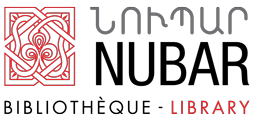
 English (UK)
English (UK)  Français (FR)
Français (FR) .jpg)
